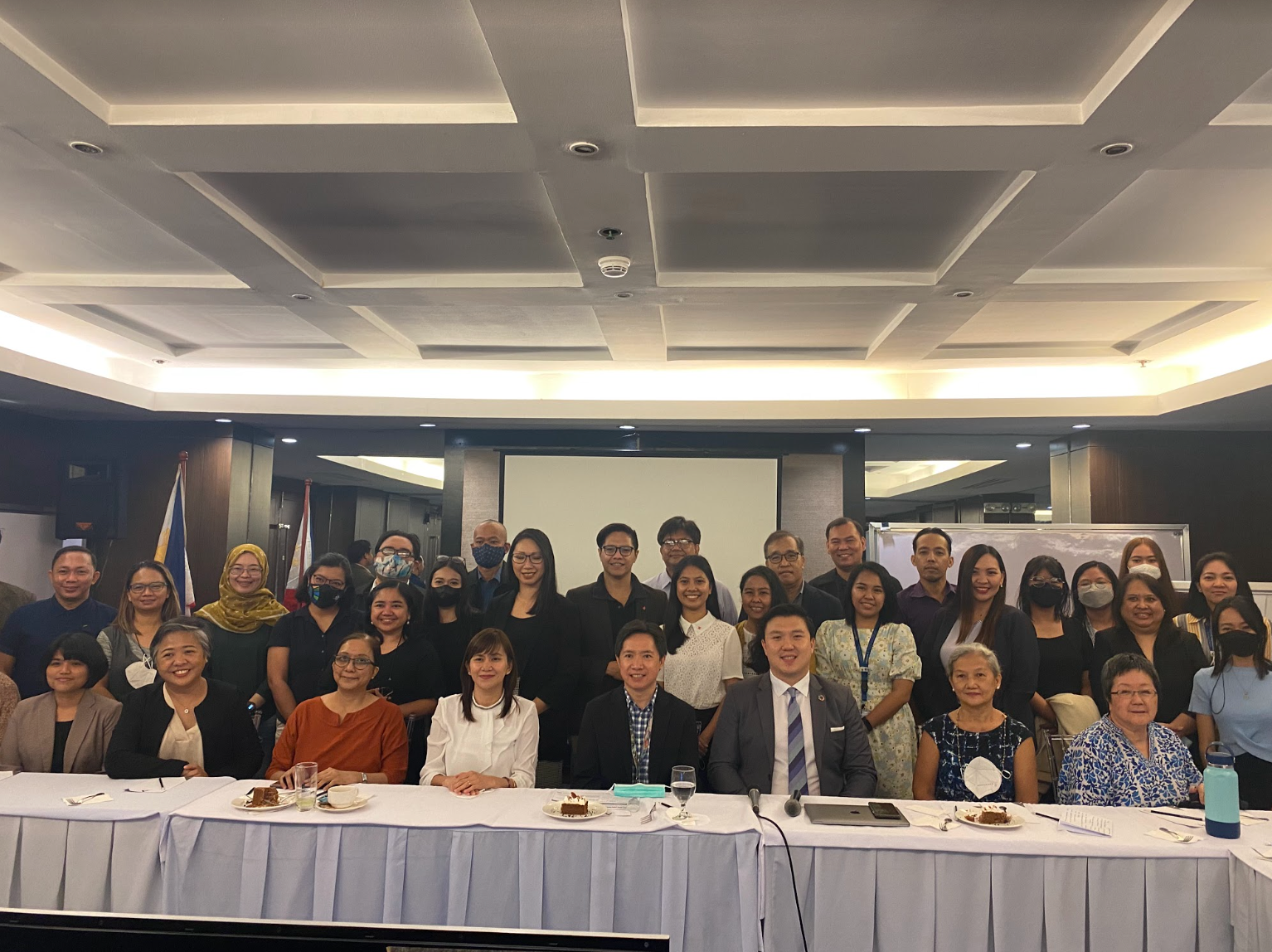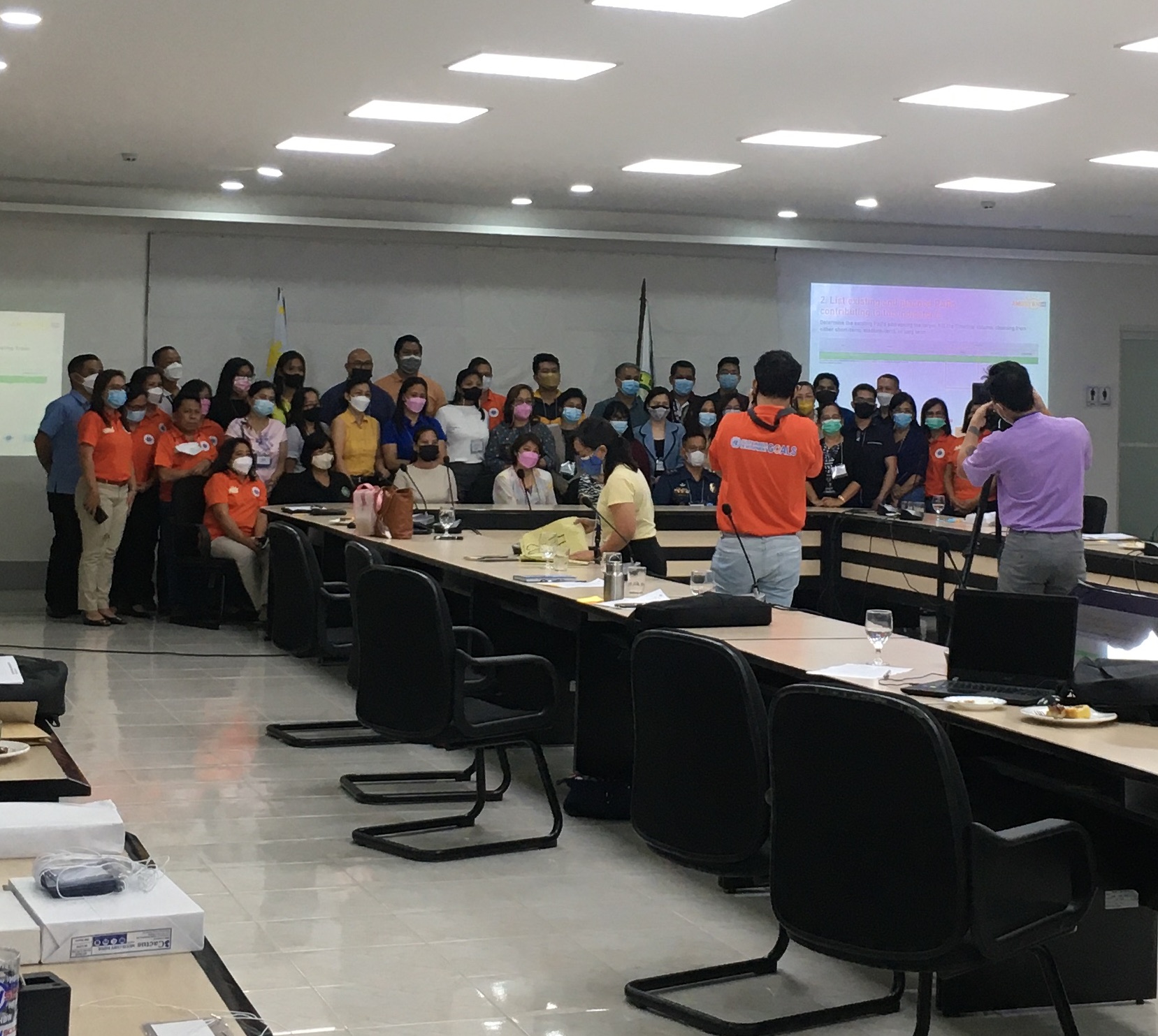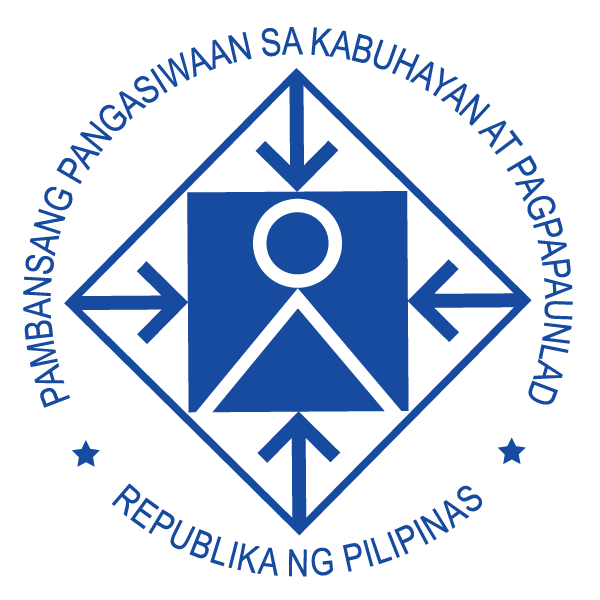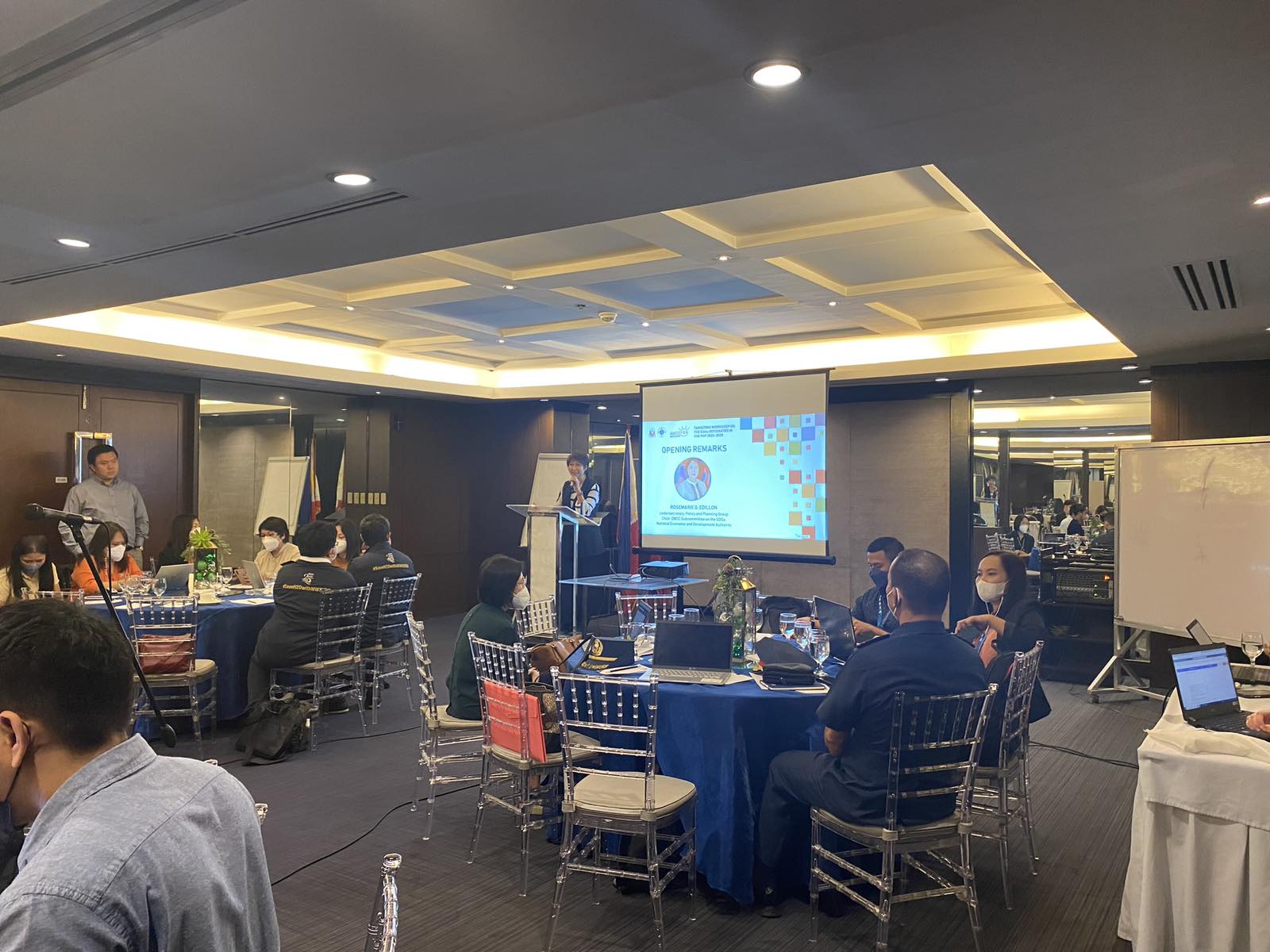Road2SDGs
Efficient, resilient, and well-planned road networks ensure that no one is left behind in the drive for inclusive growth. Therefore, roads are considered as the integral foundation for reaching out to communities and for bringing communities together towards achieving the Sustainable Development Goals (SDGs).
In 2016, only 24.6% of all provincial roads in the Philippines are of acceptable quality. Of the 12,726 km of core provincial roads, 57.2% are unpaved and in need of upgrading, while 20.2% are in poor condition, in dire need of rehabilitation. The situation is similarly alarming for the 19,098 km stretch of non-core roads, with 67% needing upgrading and 7% also in need of rehabilitation.
To address this situation, the Department of the Interior and Local Government (DILG) and the Department of Budget and Management (DBM) jointly launched the Conditional Matching Grant to Provinces (CMGP) initiative to implement road construction, repairs, and rehabilitation, and to improve the quality of the local road network across the country.
By providing the provinces with financial investment for capital outlay, the Program addresses the under-investment in local roads, while improving national local road connectivity. This aims to increase economic activity and improve public access to facilities and services in the provinces. Moreover, as governance reforms are necessary to sustain local roads management, the Program also supports governance reforms, quality assurance and the strengthening of governance processes, specifically in the aspects of local roads management (LRM) and public financial management (PFM), among others.
In partnership with DILG, the United Nations Development Programme (UNDP) has launched a project “Paving the Roads to SDGs through Good Local Governance” (Roads2SDGs) which aims to provide support to quality assurance and the governance reform components of CMGP through the ‘Roads to SDGs’ framework.
The Roads2SDGs Framework is anchored on two complementing foundational precepts – the SDGs are potent to inform and enhance road governance; and good roads governance positively ushers in the attainment of SDGs.
Eventually, the Roads2SDGs will inform and enhance the prioritization planning, design, implementation, and maintenance of road infrastructure projects to the achievement of the SDGs, incorporating the elements of partnership building, climate change and disaster risk reduction, gender mainstreaming, and citizen participation for transparency and accountability, among others.
Currently, various capacity development activities such as simultaneous technical meetings, trainings and workshops on Quality Assurance, Governance Reforms, and Citizen Participation in Road Governance were conducted across the 16 regions and 78 provinces in the country.
On Quality Assurance, the Roads2SDGs Project has formulated an enhanced Quality Assurance Manual for Roads through technical reviews and expert group workshops, along with the development of QA Tools. UNDP-hired Regional Engineers (REs) were also deployed in all regions. About 234 QA field engineers from the DILG, Philippine Association of State Universities and Colleges (PASUC) and UNDP were given intensive trainings on Quality Assurance. Eventually, QA inspections were completed and successfully conducted to 318 CMGP Projects (2017) endorsed and covered by Roads2SDGs project. UNDP-Roads2SDGs also engaged the Philippine Association of State Universities and Colleges (PASUC) on the deployment of 65 QA Engineers.
On Governance Reforms, the Roads2SDGs Project facilitated the formulation of Guidelines for Provincial Assessment and the Guidelines for Formulating the Provincial Governance Reform Roadmaps (PGRR). Further, the UNDP has deployed Governance and Institutional Development Specialists (GIDS) in every region who facilitated workshops on Provincial Assessment and ushered in as coaches and mentors of the provinces in the PGRR Formulation processes for 78 of the 81 provinces in the country. As of March 2019, 76 PGRRs have already been adopted by their Sangguniang Panlalawigan. The remaining two were already endorsed by their respective Provincial Development Councils (PDCs) awaiting adoption by their provincial legislators.
The Roads2SDGs is also scaling up citizen participation in road governance. It has already convened 102 institutions and provided enabling environment for the CSOs, academe, and private sectors to form local consortia called Holistic Undertaking Bridging Solutions for Governance (G-HUBS). To date, 16 regional consortia are already engaged to ensure the integrity of road projects. It allows citizens to monitor, plan, design and give feedbacks and engage themselves in the localization of SDGs.
The Roads2SDGs Project also produced and published a handbook on “Sustainable Development Goals – Roads2SDGs” which features the Roads2SDGs approach for CMGP and the relationship of roads governance in the different SDGs, targets and indicators. The Project has already trained over a hundred trainers on SDG Localization, aligned with the localization of the Philippine Development Plan (PDP) and the Results Matrices (RMs).
Moreover, Roads2SDGs is continuously mentoring and enhancing local capacities of regions and provinces in Local Roads Management (LRM) and Public Financial Management (PFM) thru the formulation of governance reform kits and modules and innovative electronic systems, among others. Among the integrated systems being developed are the Infrastructure Project Management System (IPMS) for Local Government Units, enhanced Roads and Bridges Information System (RBIS), Local Road Asset Management (LRAM), LGU and Citizen Reporting thru DevLIVE for CMGP-Roads2SDGs, roads planning and design, and procurement monitoring.
With the unceasing support of partner agencies, the academe, the CSOs and private sector, and most importantly, the eventual engagement of the greater Filipino citizenry, the Roads2SDGs Project will continue paving its way to its goal of leaving no one behind.
Contact Persons:
SILG Eduardo Ano
Secretary, Department of the Interior and Local Government (DILG)
USec. Marivel Sacendoncillo
Undersecretary for Local Government
Department of the Interior and Local Government
Dir. Rolyn Zambales
Director, Office for Program Development Services (OPDS)
Department of the Interior and Local Government (DILG)
Titon Mitra
Resident Representative
United Nations Development Programme (UNDP)
Dr. Emmanuel E. Buendia
Team Leader, Democratic Governance Unit
United Nations Development Programme (UNDP)
Cleto Bravo Gales Jr.
Project Manager, Roads2SDGs
UNDP-Philippines
Related Articles

SC-SDG Stakeholders’ Chamber Discuss Expansion and Localization Efforts in Q4 Meeting
The Stakeholders’ Chamber on the SDGs discuss strengthening its role as a government partner in SDG implementation, expansion of its national membership, and establishment of regional chambers, in its 4th Quarter meeting.

Localizing the SDGs: Workshops to set subnational targets in Regions V, IV-A, and X
The National Economic and Development Authority kicked off the SDG localization efforts at the subnational level in 2022 as part of the national strategy to implement the Sustainable Development Goals (SDGs) in the country.



